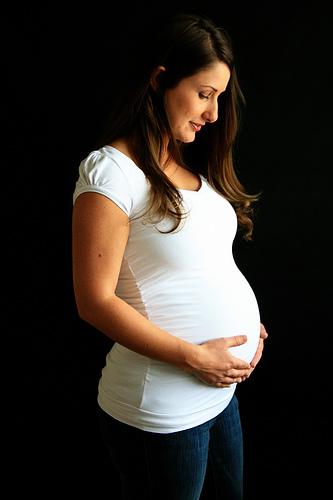New study suggests children born via C-section twice as likely to become obese
More women in the United States are opting to have children via C-section than ever before. A new study links C-sections to childhood obesity. (Photo from Flickr user molly_darling.)
According to a recent study, children born via C-section may be twice as likely to become obese in childhood.
The research team suggest that this may be caused by bacteria in the gut that affects the way food is digested. Dr. Matthew Gillman, the senior author if the new study and director of the Obesity Prevention Program at Harvard Medical School, said Project Viva followed about 2,000 expecting-mothers until their children reached age 3.
“At age 3, what we found was that among the 3-year-olds born by Caesarean-section, the rate of obesity was about 16%. Whereas those born by vaginal delivery, it was about 8%, so it’s about a twofold increase in the risk of obesity for children born by Caesarean-section,” Gillman said.
Rachael Larimore, the managing editor for Slate, has given birth to three children via C-section. She said she tries to have a “healthy” skepticism toward studies like this one because she believe the media tends to sensationalize the story and misinterpret the data.
“Sometimes stories like to find the correlation in a study and find cause that the people who are doing the study didn’t find,” Larimore said. “And this seems to be a very sound study, and it makes me want to see more studies … I just think we need to be careful not to stigmatize women who have a C-section.”
Larimore said women have to take in multiple considerations when deciding how to birth their babies. After successfully birthing her son from an emergency C-section, she decided to have all of subsequent births the same way.
Gillman said causality cannot be determined in an observational study like Project Viva, but his research team looked at other influencing factors.
“Looking at the study itself, it was important for us to look at maternal body mass index or obesity because it’s related to both Caesarean-section and offspring obesity. And we thought, ‘Could this be the explanation?’ But no matter how we took it into account, we still saw the association,” Gillman said.
The doctor said it’s important to take his team’s study into consideration because of the sharp increase in C-sections in the United States and because it’s an important decision for women and their obstetricians. Larimore said she would like to see more studies focused on why more women are having C-sections.
“Is it because we are having women deliver children older and older? You know, women in their forties are having children. Is it because more women are obese? As (Gillman) said, there’s a correlation between obesity and having to deliver via C-section, so I think it’s an important addition to the conversation,” Laramine said.
Gillman said he would also like to see research into the mechanisms of the link between C-sections and childhood obesity. With childhood obesity on the rise, more studies trying to explain the figures are likely to come.
